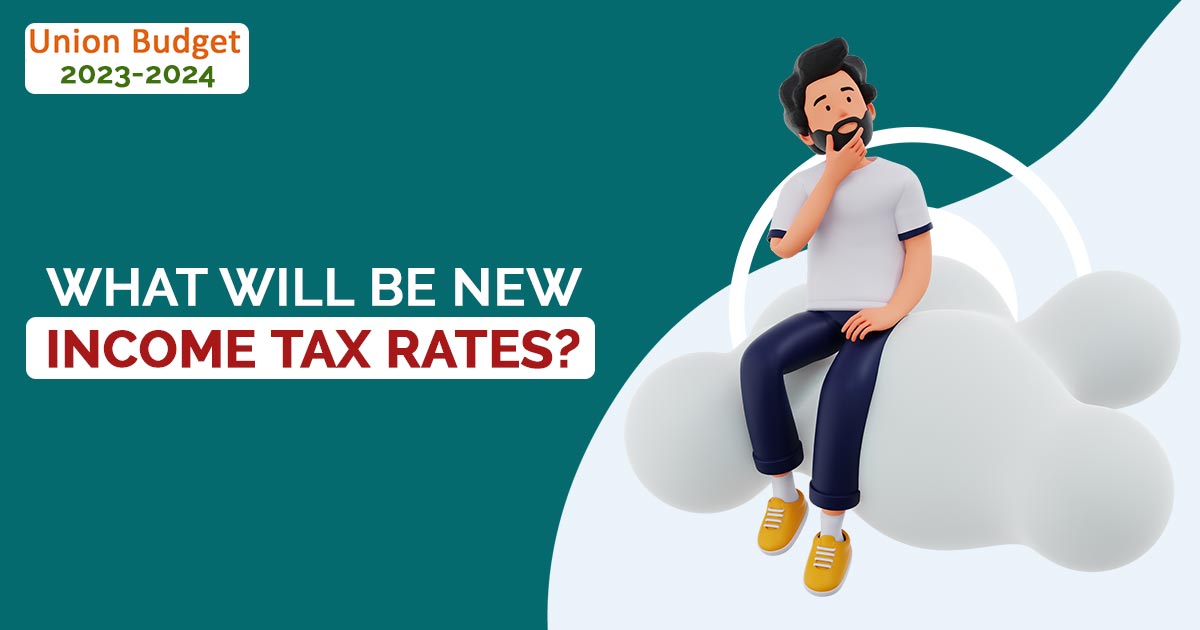
Reduce the personal income tax rates is been suggested to FM Nirmala Sitharaman, in the Union Budget 2023-24 for raising the consumption in the economy, however, there are two options one is a lower income tax regime with some exemptions and the other is a higher income tax regime with all exemptions provided to assessees. Prior to proceeding towards reducing the tax rates the confusion on the two regimes must be prevented.
There would be 6 slabs in the lower tax regime proposed to the assessee from the year 2020-21.
Opposite to the corporation of the tax regime the lower rate option in the personal income tax does not attract much more people. There is almost nil number of assessees who choose the lower tax regime.
“Hence it should be done away with,” from the sources.
Tax experts mentioned that there are 2 regimes available to the assessee at the current time an old and a new regime that directed confusion to the assessee and therefore the first option is the best. “The new regime has anyway not been attractive to a large segment of individual taxpayers and therefore, the government should encourage the old regime as this would remain beneficial for those who would have been giving rent, EMIs for home loans, life and medical insurance, and tuition fee for children, etc. The importance of insurance, term plans, medical insurance will always continue for taxpayers,” he said.
From 2020-21, an option is provided by the budget for the lower personal income tax regime to those people who earn up to Rs 15 lakh furnished that they withdraw exemptions. The latest tax slabs are 5%, 10%, 15%, 20%, 25%, and 30%. The old regime secures identical 10-20-30 per cent slabs. A 37% higher surcharge is there on the income tax for people who earn over Rs 5 cr in a year.
When an assessee chooses the new tax regime then some exemptions like money obtained for the gratuity, leave encashment, voluntary retirement scheme, and others are available. There are different deductions available like conveyance allowance for expenditure made towards work travel, investments in the mentioned pension schemes, any allowance towards the travelling for employment or on transfer, and others.
While the lower corporation tax regime from 2019 would become hit.
15.85% of the companies including 62.01% who have total income have chosen the 22 % tax scheme 0.14% of companies with little income opted for bearing advantages under the 15% tax regime in 2019-20, as reported from analyzing the concession tax rates.
Read Also: Current Income Tax Rates for Individuals and Salaried
For personal income taxation, the progress is not higher as mentioned above, but the information has not come out yet in the public domain.
Tax expert specified that “A very few would have taken it (concessional tax regime) because if I find that I have to pay less tax by even Rs 50 in a particular regime, I’ll adopt that regime.”
Until the older regime gets disincentive the new regime will not gain any traction along with the incentives would be allocated for the new regime with nil exemptions “And unless we do that, we will not be able to simplify the tax rates,” he added.
Tax experts specified that recognizing the available regimes the same is hard and that there are any subsequent rate reductions for the new regime. But the new regime secured the number of income tax slab rates. As per the finance ministry, the intention for the reduction in tax along with the easier tax would be met.
For the assessees who choose the old regime the government might acknowledge surging the exemptions/deductions/rebates limits instead of proceeding to the tax cuts or rise in the income limits which does not levy to tax.
Tax experts mentioned that “This would enable the government to achieve the twin objective of providing tax relief to taxpayers as well as to ensure that the base of taxpayers filing the returns is not eroded. In case the rebate limit is pumped up (from the existing limit of Rs 500,000), the taxpayers will still be required to file the tax returns even if no tax is payable by them,”
It is anticipated that the personal tax rates must be lessened not for the consumption of fuel but for the higher liquidity to meet the situation post covid.
“With no new personal income tax exemptions over last several years, dividend and long-term capital gains being made taxable, GST being introduced in most of the items touching personal consumption with no set off available, high inflation in every aspect of livelihood (food, education, medical, housing market, interest on loans etc), there is a need to have more disposable income in hands of the individuals,”
The lessening in the tax rates exceeds the compensation via the indirect tax obtained with the higher consumption.
For the personal tax, people see the tax cuts as the tax rates are the same and they anticipate an increased limit of various deductions like repayment of housing loan deductions.
“The effective tax rate for the super-rich should be reduced as well. Besides, the present limit for 80C deduction should be enhanced,” the tax expert mentioned.